
The Liberation of Oola
By codybennett535

29 Oct, 2023

Oola, the green twi'lek slave dancer, was a captivating sight. Her lithe figure moved fluidly to the rhythm of the alien music, her two lekku swaying in harmony with her movements. But behind her dance, there was an underlying sadness.
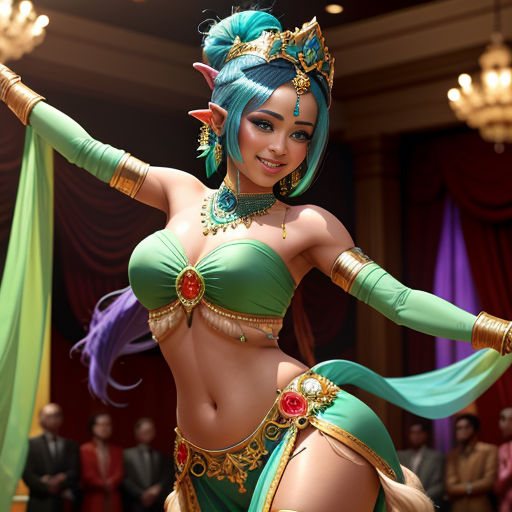
Her eyes, a vibrant shade of blue, glistened with tears that she dared not let fall. She was a slave, and tears were not permitted. She had to smile, to dance, to entertain.
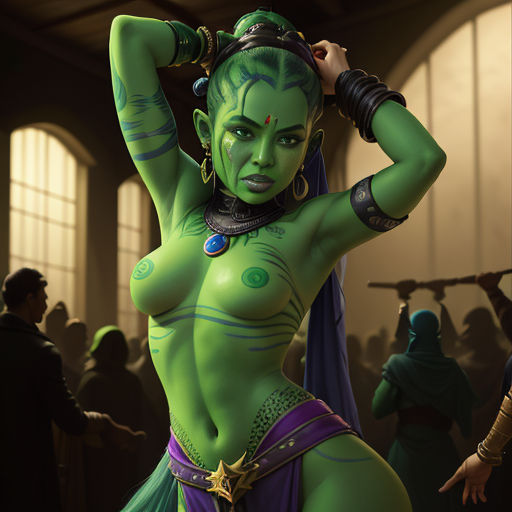
The jeers and laughter of the crowd echoed in the vast chamber, bouncing off the stone walls and reaching Oola's ears as a cruel reminder of her reality. She was an object of amusement for these beings.
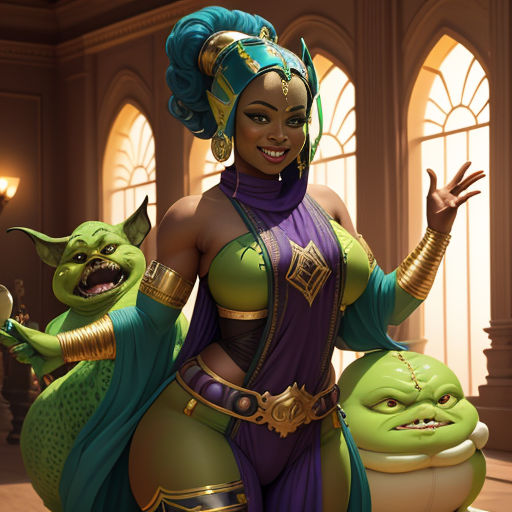
Her master, Jabba the Hutt, watched her with a gluttonous gaze. He saw her not as a person, but as an exotic pet, a plaything to be used and discarded at his whim.
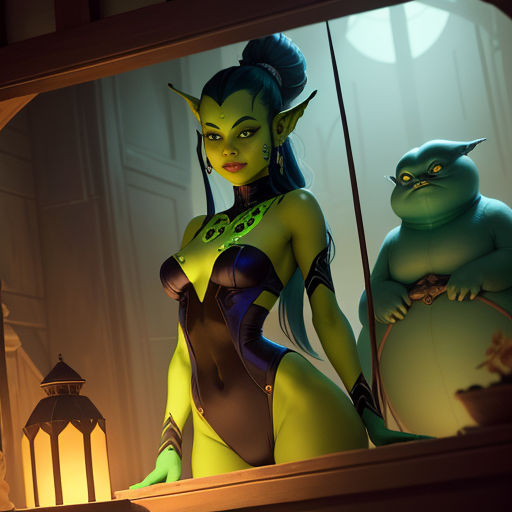
Oola yearned for more. She wanted to be seen, to be known, to be loved. But all she received was lust and desire, and the sickening satisfaction of her master.
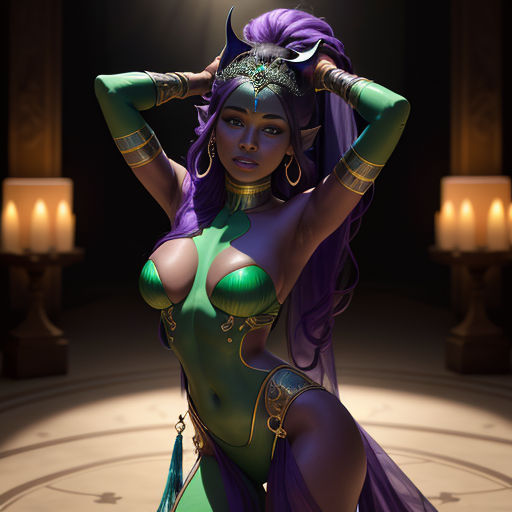
One day, as she was forced to perform, she caught a glimpse of something in the crowd. A figure hidden in the shadows, watching her not with lust, but with empathy.
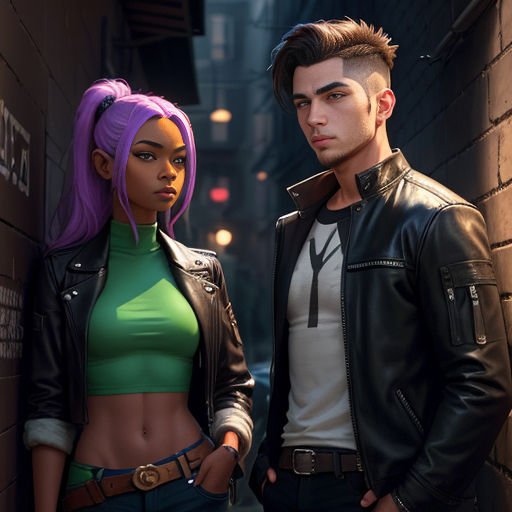
The figure was a young man, human, with a determined look in his eyes. He seemed to be waiting, observing, planning. Oola could sense his intentions were not malicious.
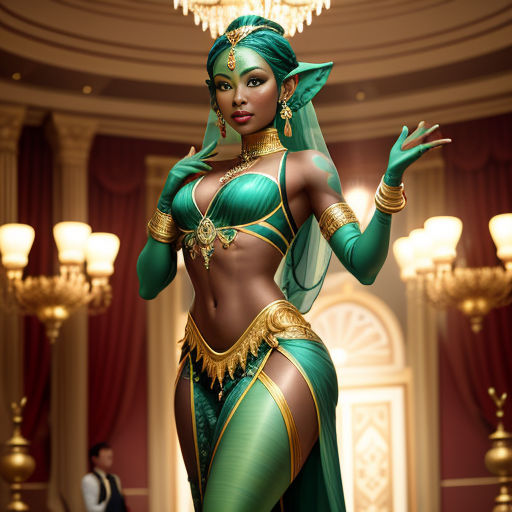
In his gaze, she saw a glimmer of hope. Hope for freedom, for a life outside the palace walls, hope for a chance to be more than just a slave dancer.

This hope fueled her defiance. It gave her strength to reject Jabba's advances, to deny him the pleasure he sought from her. But this defiance came with a heavy price.

Furious at her refusal, Jabba sentenced Oola to death by the Rancor. She was cast into the pit, a terrifying monster awaiting her. Yet, she faced her fate with dignity.

The Rancor was a massive beast, its gaping maw filled with razor-sharp teeth. It roared and lunged at Oola, but she danced around it, evading its deadly grasp.
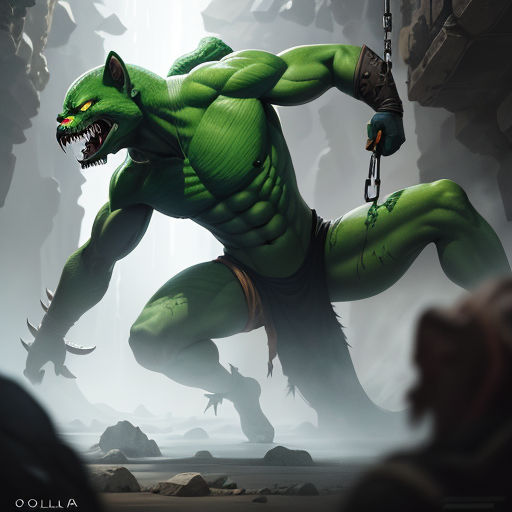
She fought for her life, using her agility and quick thinking to outmaneuver the beast. She danced, not for entertainment, but for survival, her movements a testament to her will to live.
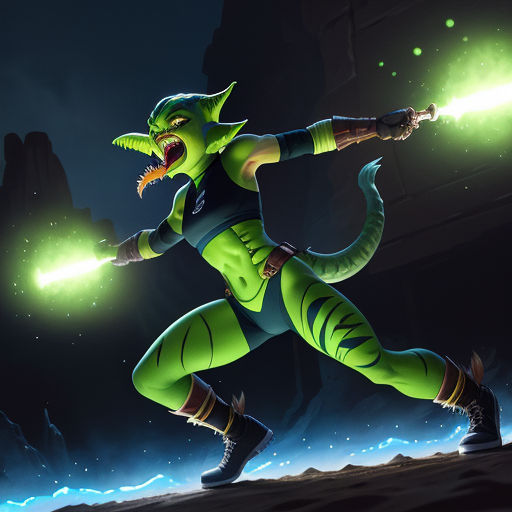
The crowd watched in awe as Oola dodged and evaded the Rancor's attacks. They cheered for her, their amusement turning into admiration for her courage and determination.

But the Rancor was relentless. It cornered Oola, its massive body blocking her escape. She was trapped, her fate sealed. But even then, she did not falter.
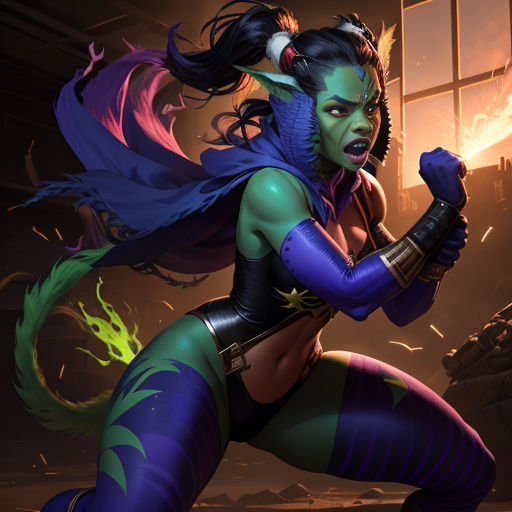
As the Rancor lunged for her, she stared it down, her eyes filled with a defiant spark. She would not go down without a fight. She would not let her spirit be crushed.
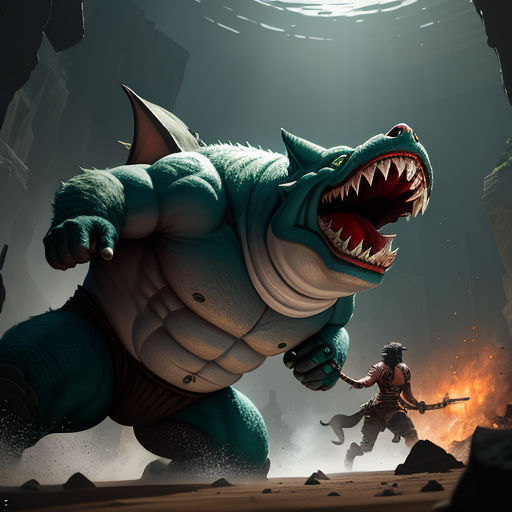
The Rancor's jaws closed around her, its teeth piercing her flesh. But she did not scream. She did not beg for mercy. She met her end with a defiant glare.
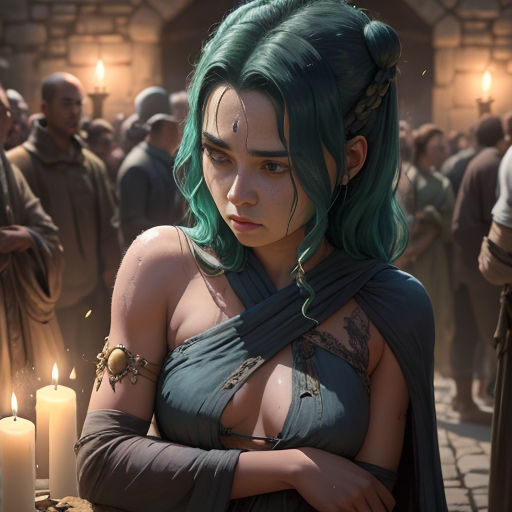
Her death was met with silence. The crowd, once boisterous and uncaring, was now quiet and solemn. They had witnessed the fall of a warrior, not the death of a slave.
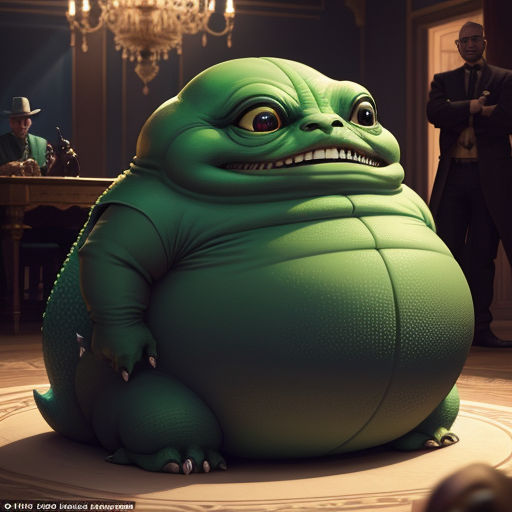
Jabba watched, a sense of satisfaction turning into unease. His plaything was gone, devoured by his pet. But her defiance had left an indelible mark on his court.
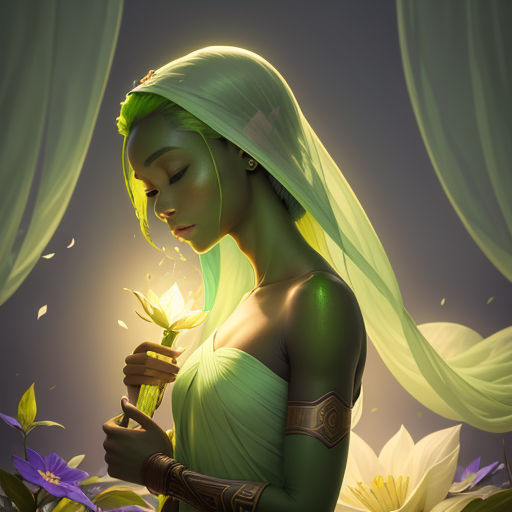
Oola's death had revealed a truth. She was not an object. She was not a toy. She was a person, a being with dreams and desires, a fighter till her last breath.
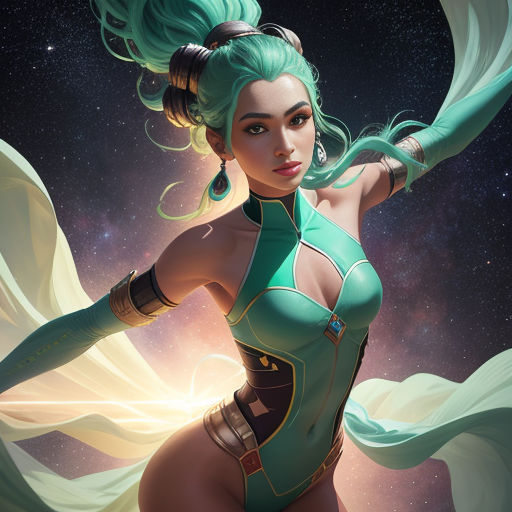
Her spirit lived on, a beacon of hope for those still in chains. Her story spread throughout the galaxy, inspiring countless slaves to rise against their masters.

The mysterious man too, had watched Oola's final moments. Her courage and defiance had moved him. He vowed to carry on her fight, to bring an end to the tyranny of the Hutts.
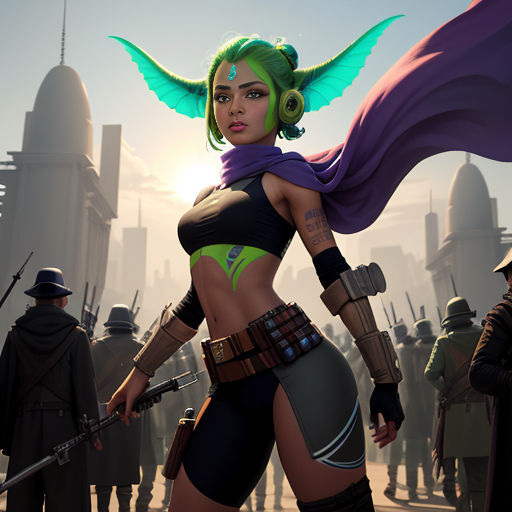
And so, Oola's legacy lived on. Her life might have been marred by servitude and suffering, but her death was a symbol of resistance, a spark that ignited a flame of rebellion.
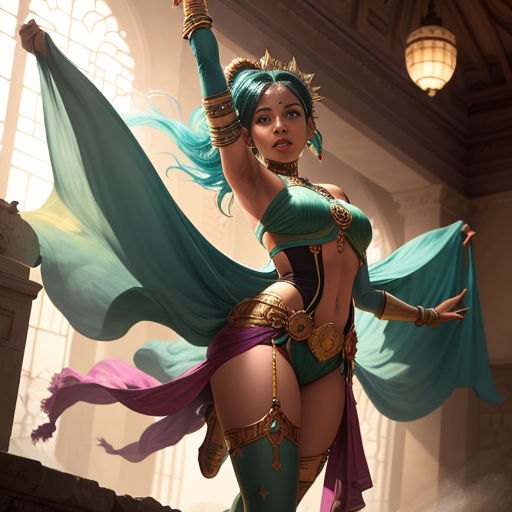
Oola's liberation was not in her life, but in her death. She had been a slave, but she died a hero. And in her defiance, she found the freedom she had so dearly craved.
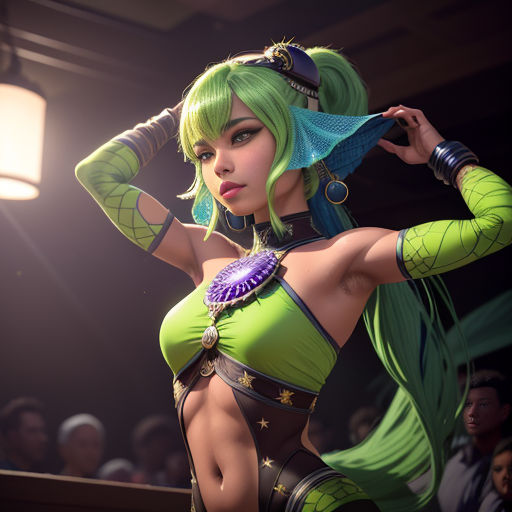
Oola, the green twi'lek slave dancer, was remembered not for her dance, but for her spirit. A spirit that refused to bow, to submit, to break. A spirit that lived on, inspiring countless souls.
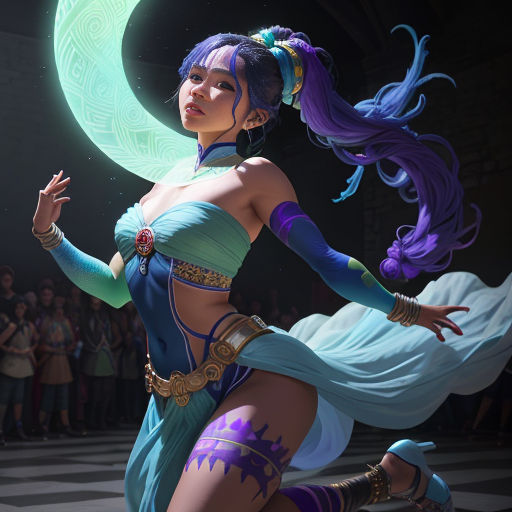
And so, even in death, Oola danced. Not to the tunes of alien music, but to the rhythm of freedom. A dance of rebellion, a dance of defiance, a dance of liberation.